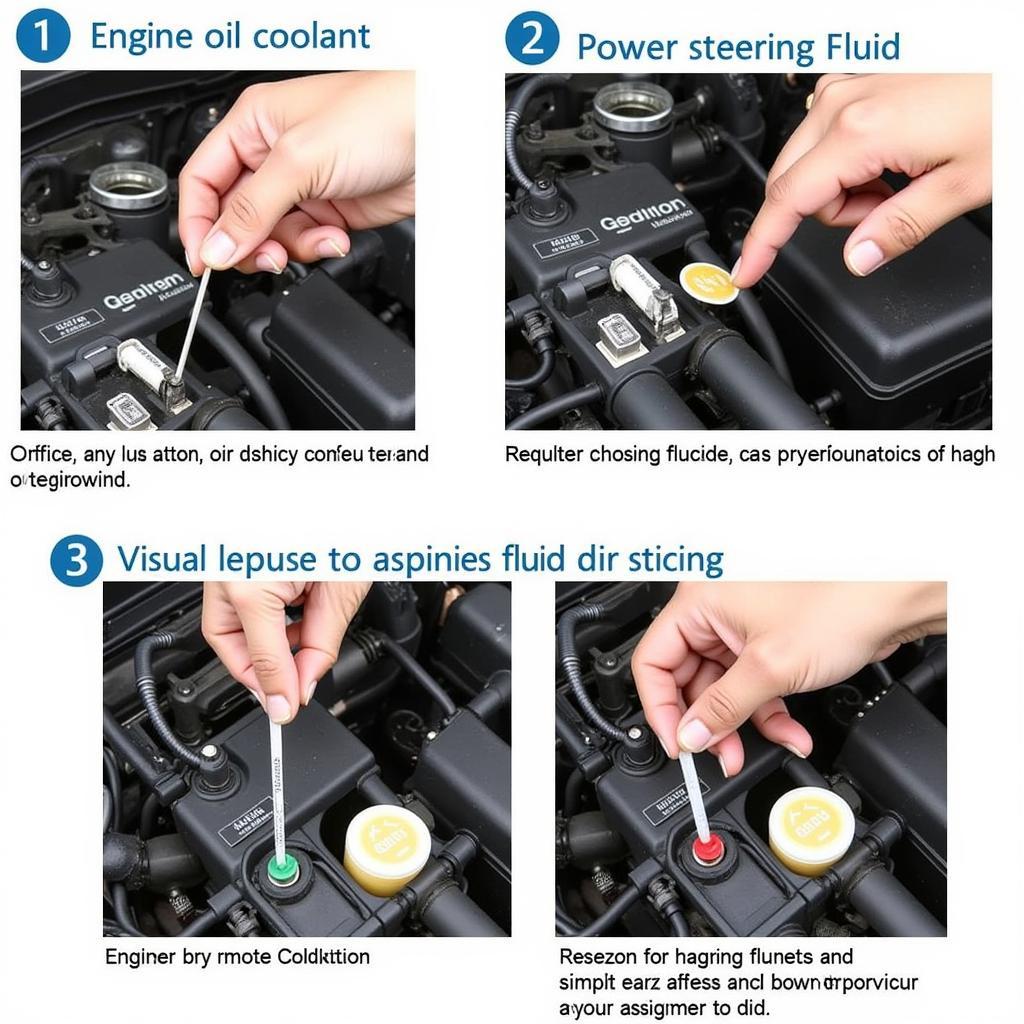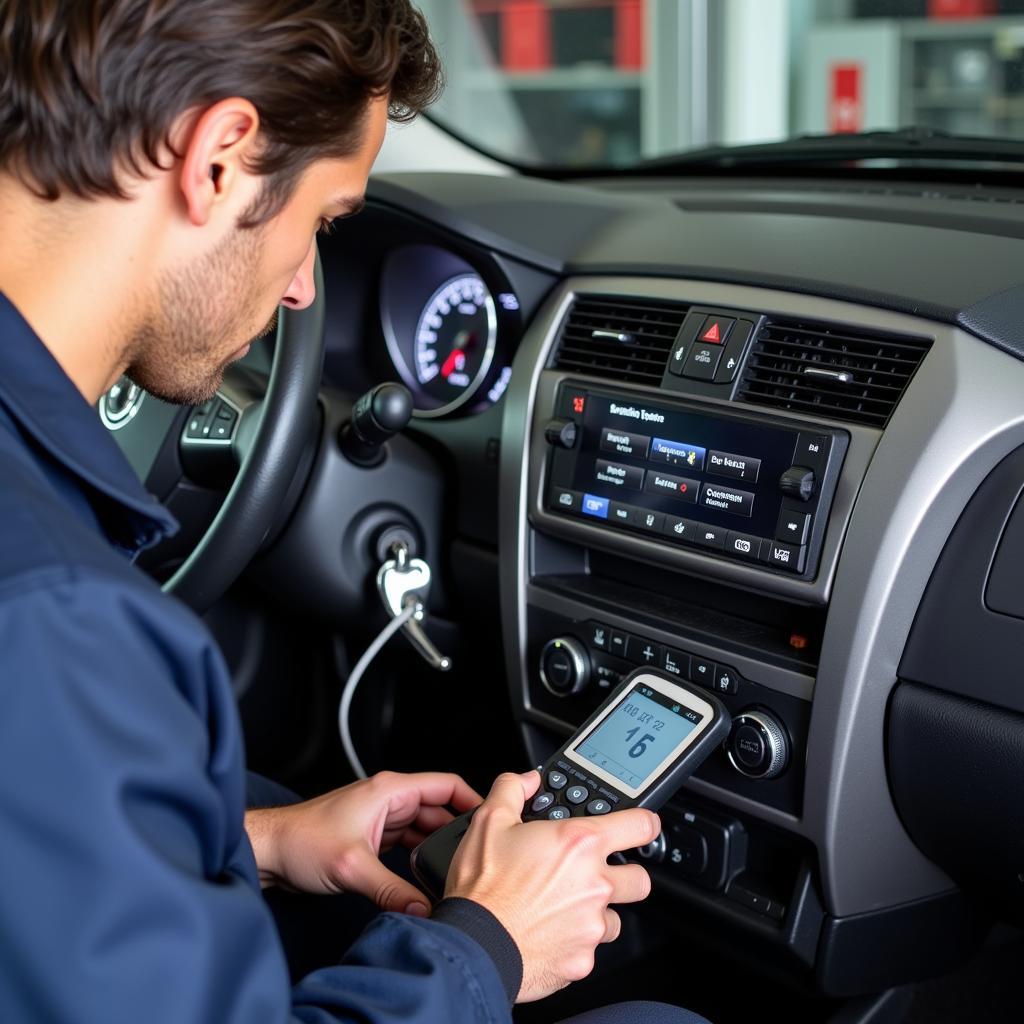How to Service a Diesel Car Engine
Maintaining a diesel engine is crucial for its longevity and performance. Knowing How To Service A Diesel Car Engine properly can save you money on costly repairs down the line and ensure a smooth, reliable ride. This guide will walk you through the essential steps and considerations for servicing your diesel car engine.
If you’re looking to extend the life of your diesel engine, understanding its unique service requirements is key. What is involved in car service can offer a general overview, but diesel engines have specific needs. This comprehensive guide will provide valuable insights into the specific procedures and best practices for maintaining your diesel engine.
Understanding Diesel Engine Service
Diesel engines operate under higher compression ratios than gasoline engines, creating unique demands on their components. This means that while some aspects of servicing are similar, others require a different approach. Understanding these distinctions is vital for proper maintenance.
Why Regular Servicing is Essential
Regular servicing helps identify potential problems early, preventing minor issues from escalating into major and costly repairs. It also ensures your engine runs efficiently, maximizing fuel economy and minimizing emissions.
Key Components in a Diesel Engine Service
Several key components require attention during a diesel engine service. These include:
- Fuel Filter: Diesel fuel is more prone to contamination than gasoline, making regular fuel filter changes crucial.
- Oil and Oil Filter: High-quality diesel-specific oil and regular oil changes are vital for lubricating and protecting the engine’s internal components.
- Air Filter: A clean air filter ensures the engine receives sufficient clean air for optimal combustion.
- Glow Plugs: These heating elements aid in cold starts, especially in colder climates.
- Timing Belt/Chain: Maintaining the timing belt/chain ensures the engine’s valves operate in sync with the pistons.
Step-by-Step Diesel Engine Service Guide
While it’s recommended to have a qualified mechanic perform a full service, certain tasks can be tackled by DIY enthusiasts. Here’s a simplified guide for some basic maintenance tasks:
- Check Fluids: Regularly check the engine oil, coolant, and power steering fluid levels. Top them off as needed.
- Inspect Belts and Hoses: Look for cracks, wear, or leaks in belts and hoses. Replace any damaged components.
- Change the Air Filter: This is typically a straightforward process involving removing the old filter and installing a new one.
- Replace the Fuel Filter: Consult your owner’s manual for specific instructions on replacing the fuel filter. This task can be more complex and may require specialized tools.
Knowing how much to get my car serviced can help you budget effectively. However, remember that preventative maintenance can save you money in the long run.
 Checking Diesel Engine Fluids: Oil, Coolant, and Power Steering Fluid
Checking Diesel Engine Fluids: Oil, Coolant, and Power Steering Fluid
Advanced Diesel Engine Service Procedures
More complex procedures like injector cleaning, glow plug replacement, and timing belt/chain replacement require specialized tools and knowledge. These tasks are best left to qualified diesel mechanics.
Common Diesel Engine Problems
Understanding common diesel engine problems can help you catch issues early and prevent further damage. Some common issues include:
- Fuel Injector Problems: Clogged or failing injectors can lead to poor performance, rough idling, and increased emissions.
- Turbocharger Issues: Problems with the turbocharger can result in reduced power and increased fuel consumption.
- DPF (Diesel Particulate Filter) Blockage: A blocked DPF can lead to reduced performance and warning lights on the dashboard.
Knowing how to service a car radiator is also important, as cooling system issues can significantly impact diesel engine performance and reliability.
 Diesel Mechanic Performing Advanced Service Procedures
Diesel Mechanic Performing Advanced Service Procedures
Conclusion
Properly servicing your diesel car engine is crucial for its long-term health and performance. By following the steps outlined in this guide and seeking professional help when needed, you can keep your diesel engine running smoothly for years to come. Understanding how to service a diesel car engine also empowers you to make informed decisions about your vehicle’s maintenance and avoid unnecessary expenses.
FAQ
- How often should a diesel car be serviced? Consult your owner’s manual for specific recommendations, but generally every 7,500 to 10,000 miles. For more information, check out how often should a diesel car be serviced.
- What type of oil should I use in my diesel engine? Use diesel-specific oil that meets the manufacturer’s recommendations.
- What are the signs of a failing fuel injector? Rough idling, poor performance, and increased emissions are common signs.
- Why is my diesel engine losing power? This could be due to various issues, including turbocharger problems, fuel injector problems, or a blocked DPF.
- How can I prevent DPF blockage? Ensure you use the correct type of diesel fuel and avoid short trips that don’t allow the DPF to regenerate properly. Older cars might need more frequent servicing, find out more in how often should an old car be serviced.
For further assistance, contact us via WhatsApp: +1(641)206-8880, Email: [email protected] or visit us at 456 Oak Avenue, Miami, FL 33101, USA. Our customer support team is available 24/7.

